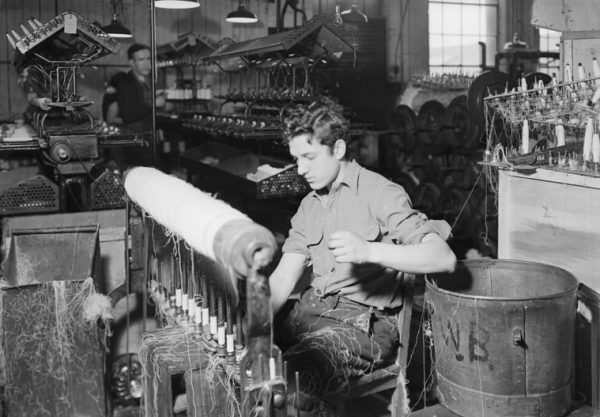Where to Find Your Ancestors’ Occupations
Do you know what occupations your ancestors held? If you haven’t been paying attention to what your relatives did for a living, you may want to start now. Knowing what occupations your relatives held can give you better insight into their everyday lives, their social status, education level, or even their migration patterns.

Image: U.S. National Archives
Occupations can also give you clues for new areas of research. Below are a some places where you can locate your ancestors’ occupations:
Census Records
Census records provide you with information for a household, including each person’s age and occupation. You should also take a look at their neighbors. You may find other family members living close by.
City Directories
As a snapshot of a specific time and place, city directories are an excellent source for genealogical clues. Not only are they fantastic for filling in the gaps between censuses, but they may also tell you what your ancestors did for a living. Directories are also filled with old business ads, so if anyone in your family tree once owned a business, you may even find it advertised in the directory!
Genealogy Research: Don’t Overlook City Directories
Military Draft Registration Cards
Do you have ancestors who were drafted into the military? Military draft records may list your ancestors’ occupation at the time of the draft. World War I draft registration cards asked for a person’s occupation and their employer.
Vital Records
Birth, marriage, and death records provide essential information for your genealogy research. These will sometimes include the occupations of parents, the occupations of the bride and groom, or the occupation of the deceased.
Obituaries
Obituaries may offer insight into a person’s life. They often include the names of other family members, vital information such as birth and death dates, and their occupation.
Photographs
Do you have any old photographs of your ancestors at work? You may want to reexamine old photos to see if you can pick up any clues about what your ancestors may have done for a living. Keep a look out for any uniforms, pins, or locations that may provide a hint to their occupation.
Voter Registration Records
Did your ancestors vote? Check out voter registration records. These can help supplement your research and provide you with new clues. Voter registration records will include first and last names, occupations, their address, and political affiliation. Having knowledge of your ancestors’ address at a specific point in time is great to help you fill in those gaps between censuses.
Tax Records
One of the best things about tax records is that they are consistent. Tax records can reveal names, residence, birth date, and occupation. Each piece is a new nugget of information that can lead to more breakthroughs.
5 Reasons Why You Should Use Tax Records For Genealogy Research
Passenger Lists
Did your ancestors arrive on a ship? When you search for their name on a passenger list, keep a look out for any occupations listed.
Newspapers
A search through old newspapers may uncover some fantastic stories and clues. You may discover an article about an ancestor’s new business, legal notices, or an advertisement. Some articles will also report on union meetings and list members in attendance.
As you find your ancestors’ occupations, you may want to pay attention to any patterns in your tree. Skills are often passed down from parents to children. Perhaps you’ll find that an occupation was passed down through multiple generations.
The more you learn, the more details you can add to your ancestors’ life stories. What did your ancestors do for a living?







 Genealogy Discussions
Genealogy Discussions Genealogy Projects
Genealogy Projects Popular Genealogy Profiles
Popular Genealogy Profiles Surnames
Surnames The Geni Blog
The Geni Blog The World Family Tree
The World Family Tree